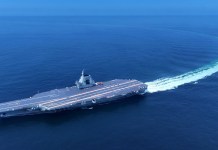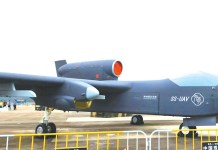Experts in both the US and India firmly believe that a full-fledged alliance between New Delhi and Washington is unlikely, the two countries can still reach a general an agreement to counter the rise of China since it is in their collective interest.
Venezuela’s president Nicolas Maduro accused of crimes against humanity
In an article titled “The India Dividend: New Delhi Remains Washington’s Best Hope in Asia,” which was published in the September/October edition of Foreign Affairs magazine, authors Robert D. Blackwill, a Henry A. Kissinger senior fellow for US foreign policy at the Council on Foreign Relations, and Ashley J. Tellis, a senior fellow at the Carnegie Endowment for International Peace, noted that for the US-Indian partnership to bear fruit, both sides must recognize that their primary shared interest is to balance a rising China – and not expect a close alliance or alignment on all major policy issues.
The Indian government hasn’t explicitly declared it was adopting such a strategy to balance the rise of China, but there are hints that India and the US are moving forward on this route.
The balance of power theory in international relations suggests that if a nation wants to prevent itself from being dominated by others, it must have the power or a reliable system to counterbalance others. The theory highlights diligence and containment between different countries.
Pak-Controlled-Kashmir Demands Freedom From Pakistan: New York Times
In reality, the balance of power is usually utilized by a certain powerful country to make coalitions or military alliances to counter its rivals – the balance of power during the Cold War is a classical example. Additionally, such a balance is likely to develop into hostility.
Amid the rise of China, some Americans have brought up again the balance of power theory. Washington’s strategic choice in China has also turned from balancing to containing China. The American Indo-Pacific Strategy is certain to maintain this comprehension.
India Sown Seeds Of War With Pakistan; Modi Following Hitlers Ideology: Pakistan Army
There is something in common between the Indo-Pacific Strategy and India’s anxieties about China’s rise. China and India have had disputes in the past and still have border issues to settle. Additionally, China has maintained very close ties (including defence) with Pakistan, India’s arch-rival.
New Delhi yearns to protect its interests in a relatively balanced regional situation through a balance of power with Beijing. However, the balance of power which India hopes for is different from that upheld by the US. The US’ so-called balance of power is directed at dominating the Asia-Pacific region and restraining China.
After World War II, some Asia-Pacific nations have indeed enjoyed comparative stability under the US-dominated order. But the structure of the region is changing. The rise of China is only a part of the changes. India and Southeast Asian countries are also rising, and they are expediting the process.
India is intensifying its ties with its neighbours, and it has thus developed the Look East policy. China’s cooperation with neighbouring countries, including India, has also seen unprecedented strengthening. Amid such changes, there is no foundation for the outdated balance of power theory.
Why India or Vietnam Can Never Replace China As World’s Manufacturing Hub?
No force is able to stop the Chinese economy from developing. China’s rising strength will certainly change the structure of the Asia-Pacific region, and cannot be balanced by either outside forces or military powers. Regional countries need to build a new order.
Balancing China will endanger India’s own interests. Since China’s development is unstoppable and is in line with the general development of the region, carrying out containment against China is highly likely to lead to the loss of opportunities for cooperation with China.
It is nearly unmanageable for regional countries to jointly contain China’s rise with the US while strengthening cooperation with China at the same time. Such a plan could have worked earlier, countries will have to make a definite choice.
Via: Global Times




